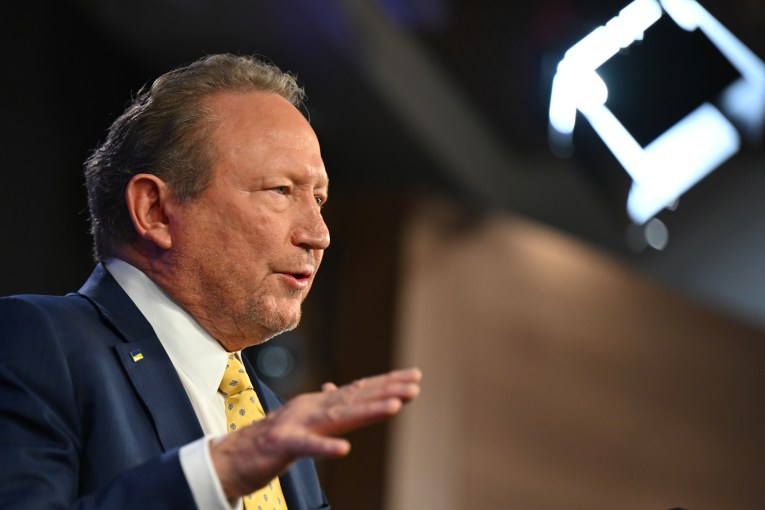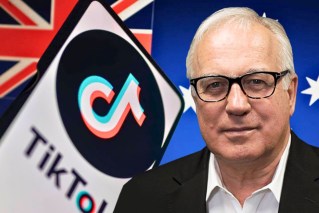As coronavirus fears grow, family group chats spread support but also misinformation

Your group chats can be a lifeline – but also a way for misinformation to spread. Photo: Getty
Misinformation about the novel coronavirus outbreak now comes via a friend of your uncle’s friend.
The messages, forwarded or copy-pasted on the Facebook-owned WhatsApp platform or in text messages, claim to be health advice from the Stanford Hospital Board or from an anonymous doctor who has a cure for COVID-19, if only anyone would listen.
As we retreat into our homes, these family text groups have become a lifeline and a hotbed for pseudoscience that risks undermining the efforts of government and public health officials.
And because these groups are typically encrypted, we know very little about what’s going on inside.
Doug MacFarlane has been doing battle in his family WhatsApp group.
A relative recently shared a video in which a man suggested blowing a hair dryer up your nose could kill any virus, including the one that causes the common cold. (Not true, and not advisable)
“It sounds crazy when I’m explaining it to you, but you watch the video and he’s got this oversimplistic diagram,” Mr MacFarlane said.
“There’s a bunch of different things going on in the video to make it compelling.”
Mr MacFarlane, who researches the psychology of health misinformation at the University of Western Australia, did some digging on the video and its creator, and was able to explain to his family how it manipulated their attention with scientific jargon and exaggeration.
But as the pandemic continues and fears grow, his debunking work is far from done.
‘I think they are frightened, and they want to help’
Much like the chain emails of past decades, coronavirus “cures” like gargling vinegar, drinking warm water or eating bananas are constantly rewritten and reconstituted, aided by technology platforms that make sharing just a quick tap.
Ben Bravery, a junior doctor at a hospital in Sydney, has also been on the offensive in his family group chats.
He’s seen graphics with “oversimplified” symptom descriptions of the disease, comparing it to the common cold or flu.
They have been shared multiple times in his WhatsApp groups, despite his attempts to warn people.
“There is a lot of this content, and people aren’t actually evaluating it, and even when someone that they do trust points out that it’s wrong, it’s still not registering that it’s wrong,” he said.
Dr Bravery is worried that this bad advice could be a distraction: People may not take the right steps to protect themselves.
Or if relatives don’t have all the symptoms on the viral graphic, they won’t get tested.
“I think they are frightened, and they want to help,” he said of the groups’ members.
Many of these fake COVID-19 protections are also so-called “natural remedies”, like drinking warm water or vinegar.
In general, we associate things in the natural world with harmlessness, Mr MacFarlane said, even though that’s not always the case.
If the solution sounds plausible, could help protect the family, and it’s “organic”, that makes it even easier to share on the group chat, because we may rationalise, what damage could it do?
Yet during a pandemic, when health officials fight with social media for our attention, no information is benign.
Although the people who create bad health advice may be after money and clicks, when it’s shared by family and friends, the motivations are more complex.
This is a stressful time, and many of us are focused on how to protect ourselves and our family.
That makes sense, but it also makes us vulnerable to cons due to what Mr MacFarlane calls “visceral influence”, when strong emotional or psychological responses guide our actions.
It effectively narrows our attention and could make us more impulsive.
“Which is fine when it’s something that you need like food or water, but you become very vulnerable to people who are willing to provide reassurance,” he said.
It’s a classic way almost anyone can get scammed.
If you know what someone wants – wealth, beauty, a cure – and offer to give it to them, they may not think laterally about whether the advice is good or bad.
This becomes especially acute when the messaging from government or public health authorities is missing, isn’t transparent and clear, or isn’t cutting through.
Because the virus is new and evolving, there is also confusion among health professionals about the COVID-19 outbreak, Dr Bravery said, so it’s hardly surprising those outside the medical profession would also be unsure what do.
“We’re really trying to teach people a whole bunch of epidemiology very quickly,” he said – a complex topic that not even all health professionals are across.
“And in that vacuum, this stuff is just going to go nuts.”
Fact checking and fighting back
Unlike the Facebook newsfeed or Twitter, private groups and chats on WhatsApp, Facebook Messenger or other platforms are closed spaces, difficult for outsiders to scrutinise.
Such platforms are a vital tool of connection, according to Dr Ariadna Matamoros-Fernández, who researches WhatsApp and misinformation at the Queensland University of Technology.
But she is concerned that fake audio that purports to be from doctors or officials about the coronavirus is also being forwarded and shared in these groups, which is particularly difficult for people to verify.
“There is more misinformation because we can’t moderate content,” she said. “It’s a really human problem.”
WhatsApp has made some changes to prevent the spread of viral information in recent years, such as limiting the number of times a message can be forwarded to five chats at once, and adding a ‘forwarded’ and ‘highly forwarded’ label.
The company has also partnered with the World Health Organisation, UNICEF and other organisations to launch a WhatsApp Coronavirus Information Hub.
“We encourage all users to check the facts online before sharing messages that have been forwarded to them, and we encourage users to engage directly with trusted and official sources for important information,” said Antonia Sanda, Facebook Australia’s head of communications.
Mr MacFarlane believes informed voices within these closed communities also make a difference, especially if they know how to spot scammers and can use science-based debunking techniques.
For now, he has offered to scrutinise health information and remedies for his family members on WhatsApp.










